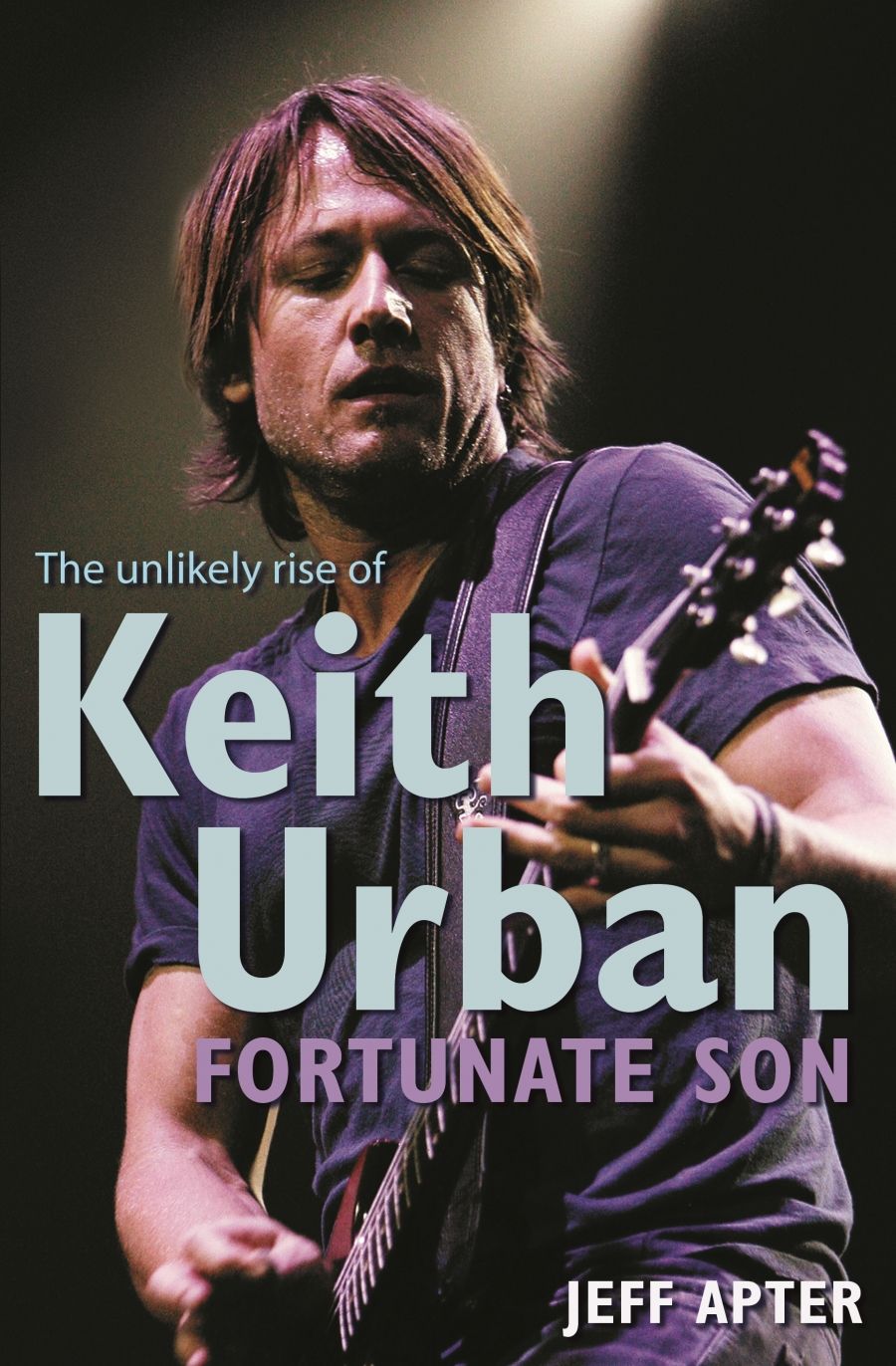
- Free Article: No
- Contents Category: Biography
- Review Article: Yes
- Online Only: No
- Custom Highlight Text:
What might pique the interest of even the most casual observer, consumer or critic of country music, popular culture or celebrity, or all three, is the title of Jeff Apter’s ‘unauthorised’ biography, Fortunate Son: The Unlikely Rise of Keith Urban. The commercially catchy title parallels and mimics the musical style of its famous subject, while also striking an odd, even humorous note in its backhanded recognition of ‘our Keith’s’ American success. That Apter also markets his biography as ‘unauthorised’ provides another selling point. Knowing that the book is not commissioned by Urban suggests that it may deliver an edgy ‘tell all’ account of Nicole Kidman’s husband. One might be forgiven for thinking that such a work will take risks, since it is under no obligation to provide a flattering portrayal of its subject. It doesn’t. In fact, its very lack of risk is clear even without undertaking a close reading.
- Book 1 Title: Fortunate Son
- Book 1 Subtitle: The unlikely rise of Keith Urban
- Book 1 Biblio: Bantam, $34.95 pb, 310 pp
- Book 1 Readings Link: booktopia.kh4ffx.net/9mO40
Before dipping fully into Fortunate Son (‘dipping’ is the appropriate word here, for reading connotes a serious commitment between authors and readers), the bibliographical material betrays the tenor of the book’s narrative style. Apter’s ‘research’ (excuse the fast and furious inverted commas, but the lightweight nature of the material warrants recognition) is made up of popular, tabloid-style newspaper articles, magazines and press releases that are smoothly absorbed within the narrative flow of Urban’s ‘unlikely’ rise to the top.
The choice of source material not only reinforces the commercial nature of the subject matter but also further dismantles the risk of Apter’s ‘unauthorised’ work. It often relies upon Urban’s own words in narrating fragments of his life story to the popular press. Apter seamlessly pieces together various sources of information in a format that is fluent, logical and very digestible. That such a method is easily consumable also means that it is easily replicated.
Apter has authored six other biographies on music success stories, including Gwen Stefani, The Cure, The Red Hot Chili Peppers, and Silverchair. This is all within the space of four years, which is not only indicative of an ability to publish quickly and consistently, but also of formulaic writing. This recent addition is a well-put-together potboiler that dramatises the commercially appealing ‘rags to riches’ story.
Although Apter is keen to espouse the unlikeliness of Urban’s American fame, every narrative element works against this premise. At the outset, Urban is revealed as the archetypal loner-individual who not only has a passion for music but fervently believes that Nashville is his ‘destiny’. What is set-up is the ‘American dream’ scenario, which is rolled up with the Australian and Urban dream of overcoming all obstacles, such as culture, place, language, isolation, disappointment and addiction, in fulfilling his destiny. There is nothing unlikely or unpredictable about this narrative. What is more, we already know the ending, since like all fairy tales, it concludes with a marriage.
The feel-good genre of the writing is supported by an irritatingly laconic method of introducing key players in Urban’s career. For instance, ex-manager Greg Shaw is introduced as a ‘true believer’; James Blundell, the Australian competition, is a ‘square-jawed Queenslander’; and Nashville star Garth Brooks is a ‘paunchy, Stetson-wearing’ American. I felt as though I was watching an American talk show rather than reading a book; Jerry Springer and Dr Phil use the same method of glib introduction. Although this aspect of formulaic writing is effective because it relays basic information quickly and stays in the mind, it is also unfortunate in that some things just should not be remembered, such as Urban’s 1990s white blond mullet and ‘ball-hugging, skin tight denims’.
Fortunate Son is a commercially inspired and generated book that ultimately espouses the value of another commercially inspired and generated product – Urban – whose recent union with ‘our Nicole’, another bankable product, leads Apter to coin the awful phrase, ‘the Kurbans’.
Whether or not one is a fan of Urban, the book leaves us in no doubt about his single-mindedness or struggle to reach the pinnacle of the American country-music industry, a hallowed place where no Australian has gone before. However, this is of course Urban’s achievement, not Apter’s. For a boy who grew up in the not-so-glamorous suburb of Caboolture, near Brisbane, and whose ear and passion for the ‘epic sweep’ of the Nashville sound came from his father’s record collection, he’s ‘done good’.
What is predictable though interesting about this book, and others like it, is that it feeds on and propagates the cult of celebrity without providing the least insight into this cultural phenomenon.


Comments powered by CComment